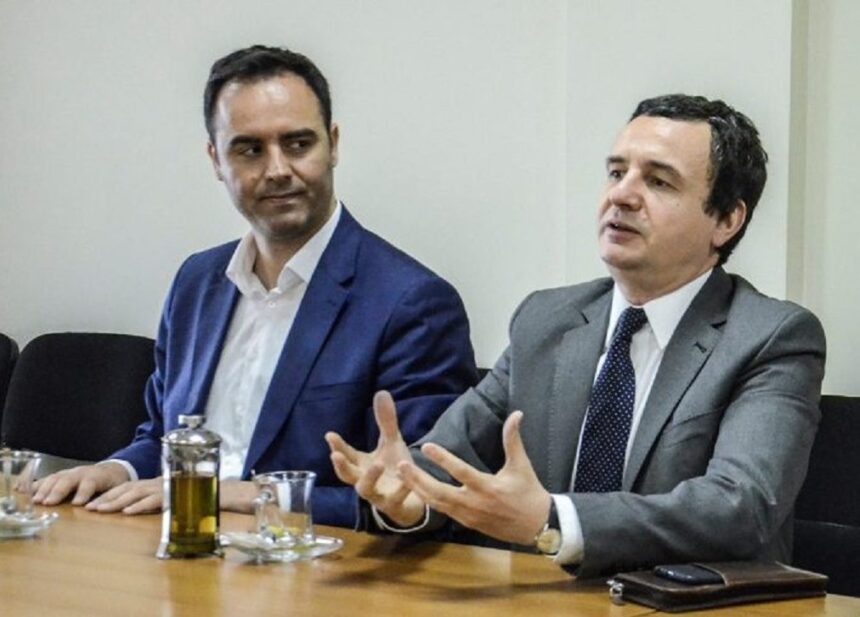Kosovo’s political stalemate continues, as the country approaches the end of the year without a new government, despite holding parliamentary elections in February 2025.
Deputy leader of Vetëvendosje (LVV) and current Speaker of Parliament, Glauk Konjufca, has until November 19 to submit a new government proposal to the Assembly. His mandate will test whether LVV can secure the necessary votes to form the next executive, following the failure of party leader Albin Kurti to do so earlier this year.
When he was nominated, Konjufca called on opposition parties to set aside political rivalries and support a temporary government until April 2026, coinciding with the end of President Vjosa Osmani’s current term. However, major opposition parties have already ruled out their support, leaving LVV in a difficult position despite being the largest party in the election.
A Government Still Out of Reach
Political analyst Naim Jakaj from the Kosovo Institute of Justice (IKD) told Radio Free Europe that Konjufca’s proposed cabinet is expected to mirror Kurti’s previous attempt, meaning the outcome is unlikely to change.
“The only realistic way forward would be a technical government with a limited mandate and specific objectives,” said Jakaj, emphasizing the urgent need to approve the state budget, municipal funding, the EU Growth Plan, and the RTK public broadcaster’s budget.
Despite the urgency, Konjufca has remained largely silent, while Kurti recently insisted that new elections in both December and April would be damaging for Kosovo’s stability.
“MPs are facing a clear choice: either a ‘Kurti 2.5’ government until December or a ‘Konjufca 1’ until April. Without either, there is no way forward,” Kurti stated.
Why Is There Still No Parliamentary Session?
Traditionally, Kosovo’s parliament has convened swiftly after a prime minister-designate is nominated. However, this time, the process has been unusually slow. Jakaj said he was “surprised” by Konjufca’s hesitation and lack of dialogue with other parties, calling the delay “uncharacteristic and concerning.”
Rumors suggest that the delay may be strategic, with some political actors allegedly seeking to align potential elections with the diaspora’s holiday return period, around December 28.
Jakaj cautioned against such timing, warning that holding elections after December 24 would make international monitoring nearly impossible due to global holiday schedules.
Constitutional Deadline Approaches
Under Kosovo’s Constitution, if the second nominee fails to form a government, President Osmani must dissolve the Assembly and call new elections within 40 days.
Recently, President Osmani urged opposition leaders to show readiness to vote on key legislative priorities, including the national budget and the EU Growth Plan, warning that failure to act could jeopardize nearly €1 billion in international funding.
“This can still be resolved, but so far, I have not received any clear answer,” Osmani said.
What If Kosovo Heads to New Elections?
Experts predict that Kosovo’s institutions may find a temporary way to secure the 2026 budget, but warn that if a government is not formed by March 31, the country could face a severe fiscal crisis.
Without a functioning government, public sector salaries and private sector contracts would remain unpaid, disrupting economic activity nationwide.
Despite these risks, political parties remain divided, and early elections appear increasingly inevitable. Analysts say the outcome may not differ significantly from February’s results, suggesting that only political compromise can break the current deadlock.
As the deadline looms, Kosovo stands at a critical crossroads—between a fragile political transition and another cycle of uncertainty.







